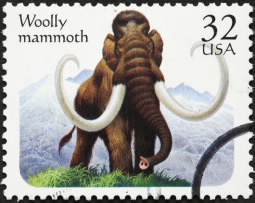FOR IMMEDIATE RELEASE
ACS News Service Weekly PressPac: September 14, 2011
Woolly mammoth's secrets for shrugging off cold points toward new artificial blood for humans
The blood from woolly mammoths—those extinct elephant-like creatures that roamed the Earth in pre-historic times—is helping scientists develop new blood products for modern medical procedures that involve reducing patients’ body temperature. The report appears in ACS’ journal Biochemistry.
Chien Ho and colleagues note that woolly mammoth ancestors initially evolved in warm climates, where African and Asian elephants live now, but migrated to the cold regions of Eurasia 1.2 million – 2.0 million years ago in the Pleistocene ice age. They adapted to their new environment by growing thick, “woolly” fur and smaller ears, which helped conserve heat, and possibly by changing their DNA. In previous research, Ho and colleagues discovered that a blood protein (hemoglobin) that carries oxygen from the lungs to the rest of the body in the woolly mammoth has mutations in its DNA that make it different from that of its cousin, the Asian elephant. The scientists turned to the mutations that helped woolly mammoths survive freezing temperatures, and carefully analyzed hemoglobin from the ancient animal.
They didn’t have a woolly mammoth blood sample, so they made the hemoglobin protein in the laboratory by using fragmented DNA sequences from three mammoths that died in Siberia between 25,000 and 43,000 years ago. Compared to hemoglobin from Asian elephants and humans, the woolly mammoth protein was much less sensitive to temperature changes, which means it can still easily unload oxygen to tissues that need it in the cold, whereas the other hemoglobins can’t. This is likely due to at least two of the mutations in the woolly mammoth hemoglobin gene. These insights could lead to the design of new artificial blood products for use in hypothermia induced during heart and brain surgeries.
![]()

points toward new artificial blood for humans.
Contact
Science Inquiries: Michael Woods, Editor, 202-872-6293
General Inquiries: Michael Bernstein, 202-872-6042


